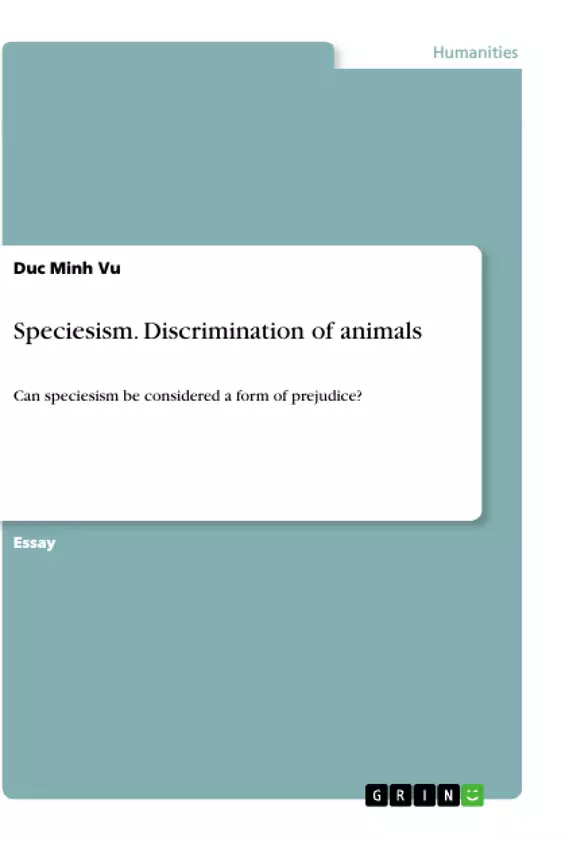This essay will apply various theories from social psychology to the human-animal relationship and argue that speciesism is a form of prejudice. It will conclude by using the findings to develop intervention concepts to reduce speciesism.
Human relationships with non-human animals are complicated. On the one hand, certain animals are valued as pets, loved and given a standard of living that is better than that of humans in poor countries. Archaeologists even found that at one point in human history, dogs were buried with humans for sentimental reasons in some cultures, highlighting the close bond between humans and their companion animals. On the other hand, farm animals are slaughtered so that their bodies provide meat that humans can consume. The term speciesism emerged and in particular parallels other forms of unjustified discrimination such as racism and sexism. Philosophers realised the inconsistency in our treatment of animals a while ago, now it is time for social psychology to bring the human- animal relationship into its theoretical framework, as this relationship is strongly social and intergroup based.
Inhaltsverzeichnis (Table of Contents)
- Introduction
- Social Identity, Self-Categorization, Generalized Prejudice and Social Dominance Theory Perspective
- Social Dominance Theory Perspective
Zielsetzung und Themenschwerpunkte (Objectives and Key Themes)
This essay examines the concept of speciesism and argues that it is a form of prejudice. Using various theories from social psychology, it aims to apply them to the human-animal relationship and analyze how speciesism can be understood as a form of discrimination based on group membership. The essay also explores potential interventions to reduce speciesism.
- Social identity theory and its application to human-animal relationships
- Generalized prejudice and its connection to speciesism
- Social Dominance Theory and its role in justifying animal exploitation
- The influence of cultural and religious norms on animal perception
- Developing interventions to reduce speciesism
Zusammenfassung der Kapitel (Chapter Summaries)
- Introduction: The essay begins by outlining the complex relationship between humans and non-human animals, highlighting instances of both care and exploitation. It introduces the concept of speciesism and its parallels with other forms of discrimination, emphasizing the need for social psychology to analyze the human-animal relationship.
- Social Identity, Self-Categorization, Generalized Prejudice and Social Dominance Theory Perspective: This section explores the social identity theory and its implications for understanding human-animal interactions. It discusses the role of categorization, stereotyping, and prejudice in shaping perceptions of different groups, including animal species. The concept of generalized prejudice is introduced, linking prejudice against animals to other forms of discrimination. Research findings demonstrating how perceptions of animal minds influence moral treatment are also presented.
- Social Dominance Theory Perspective: This section examines the Social Dominance Theory and its application to speciesism. It explains how ideological beliefs in group-based dominance contribute to the justification of animal exploitation. Research highlighting the correlation between speciesism and other forms of prejudice, such as racism and sexism, is discussed.
Schlüsselwörter (Keywords)
The primary focus of this essay is on speciesism, a form of prejudice based on species membership. It analyzes the human-animal relationship through the lens of social identity theory, generalized prejudice, and the Social Dominance Theory. Key concepts include stereotyping, social categorization, moral concern, animal cognition, and the influence of cultural and religious norms on animal perception.
- Quote paper
- Duc Minh Vu (Author), 2021, Speciesism. Discrimination of animals, Munich, GRIN Verlag, https://www.grin.com/document/1004234




